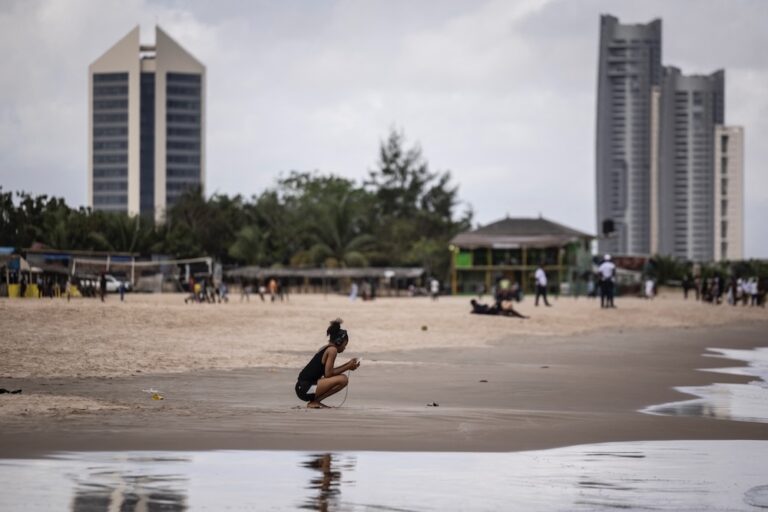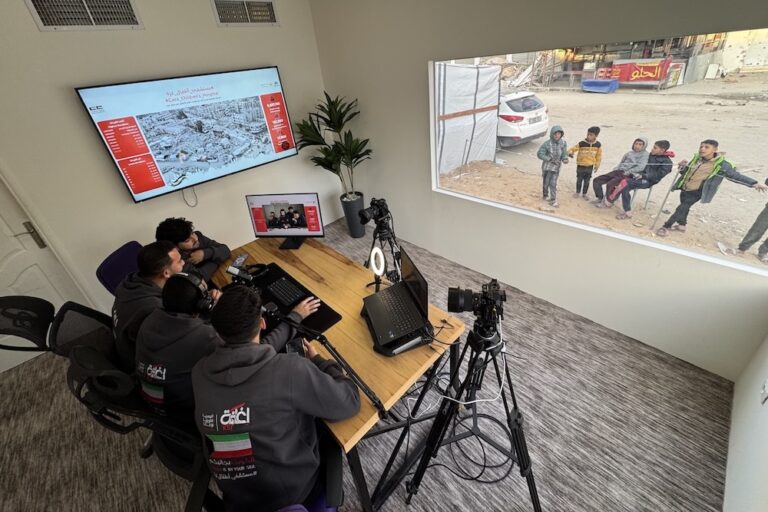23 IFEX members and other organisations call for the defeat of proposed legal mechanisms and say that attempts to address racial or religious hatred should conform to standards of international law.
(Freedom House/IFEX) – The following is a joint statement by 23 IFEX members and other organisations:
October 20, 2009
His Excellency Ambassador Idriss Jazairy
Chair, Ad Hoc Committee on the Elaboration of Complementary Standards
Permanent Mission of Algeria to the UN in Geneva
Geneva, Switzerland
Dear Ambassador Jazairy:
We are writing to express serious concern about proposals to create new legal mechanisms or changes to the existing international legal framework to combat the serious problems of racism, racial discrimination, xenophopia and related intolerance under consideration by the Ad Hoc Committee for the Elaboration of Complementary Standards.
A number of United Nations member states have proposed the establishment of new legal standards, in the form of a convention or an additional protocol to the International Convention on the Elimination of All Forms of Racial Discrimination, which would combat “incitement to racial and religious hatred.” The proposals will be discussed at the meeting of the Ad Hoc Committee, which commenced in Geneva on October 19.
We strongly urge the defeat of such proposals and emphasize that any attempts to address issues of racial or religious hatred conform to existing standards of international law, which already accept limitations of freedoms based on potential public interest concerns such as incitement to violence and public order.
While our organizations are dedicated to fighting racism and other forms of intolerance, we oppose the creation of new legal mechanisms to address issues of racial and religious discrimination that we believe would degrade, and not enhance, human rights. As many governments on the committee have pointed out, existing international norms and standards are fully sufficient to combat the problem. The current priority should be ensuring their implementation.
In contrast, the establishment of a new legal instrument could have dangerous repercussions for both freedom of expression and religion. Language used by Pakistan, writing on behalf of the Organization of the Islamic Conference, to describe the breadth of a new mechanism is particularly chilling in the limits it places on freedom of thought, discussion, and belief by imposing overbroad limitations that far exceed current international accepted standards.
According to the submitted statement, the proposed instrument would include:
“Legal prohibition of publication of material that negatively stereotypes, insults, or uses offensive language on matters regarded by followers of any religion or belief as sacred or inherent to their dignity as human beings.”
We fear that a new legal instrument allowing states to outlaw speech according to what they deem offensive could be subject to misuse, empowering governments to suppress the views of minority religious groups, or dissenters within a majority religion. Robust debate often entails speech that is offensive to some; this is the nature of disagreement. Moreover, such language protecting religious beliefs themselves, rather than the people who hold those beliefs, undermines the entire basis of international human rights laws, which are designed to protect people and not ideas.
We believe there are numerous other, more appropriate, avenues for addressing racial and religious hatred. In particular, we encourage greater support for the existing Special Rapporteurs for Religious Freedom, Racial Discrimination, and Freedom of Expression, each of whom operates with an explicit mandate to focus on those issues.
We also emphasize that effective combating of racism, racial discrimination, xenophobia and related intolerance does not necessitate the creation of new legal norms—there are non-legal responses that can be employed, such as sharing new guidelines or best practices among countries and organizations. This could lead to a robust dialogue that we believe better addresses the real problem of discrimination on the basis of race, ethnicity, and religious belief.
In a joint statement on April 22, 2009, the Special Rapporteurs for Religious Freedom, Racial Discrimination, and Freedom of Expression made a similar argument. They pointed out, “Legal responses, such as restrictions on freedom of expression alone, are far from being sufficient to bring about real changes in mindsets, perceptions and discourse…More speech can be the best strategy to reach out to individuals’ hearts and minds, changing what they think and not merely what they do.”
Thank you for your attention to this very important issue.
Sincerely,
Becket Fund for Religious Liberty, United States
Centre for Political Studies (CEPOS), Denmark
Darfur Peace and Development Centre, Switzerland
Endeavour Forum, Inc., Australia
Environmental Protection Society, Pakistan
European Training and Research Centre for Human Rights and Democracy, University of Graz, Austria
Indonesia Legal Resource Center, Indonesia
Indonesian Conference on Religion and Peace, Indonesia
International Humanist and Ethical Union, United Kingdom
Leimena Institute, Indonesia
Montagnard Foundation, Inc., United States
Tifa Foundation, Indonesia
World Union of Progressive Judaism, Israel
UN Watch, United States
Wahid Institute, Indonesia
Cc: Members of the Ad Hoc Committee for the Elaboration of Complementary Standards
Madame Navenethem Pillay, United Nations High Commissioner for Human Rights


